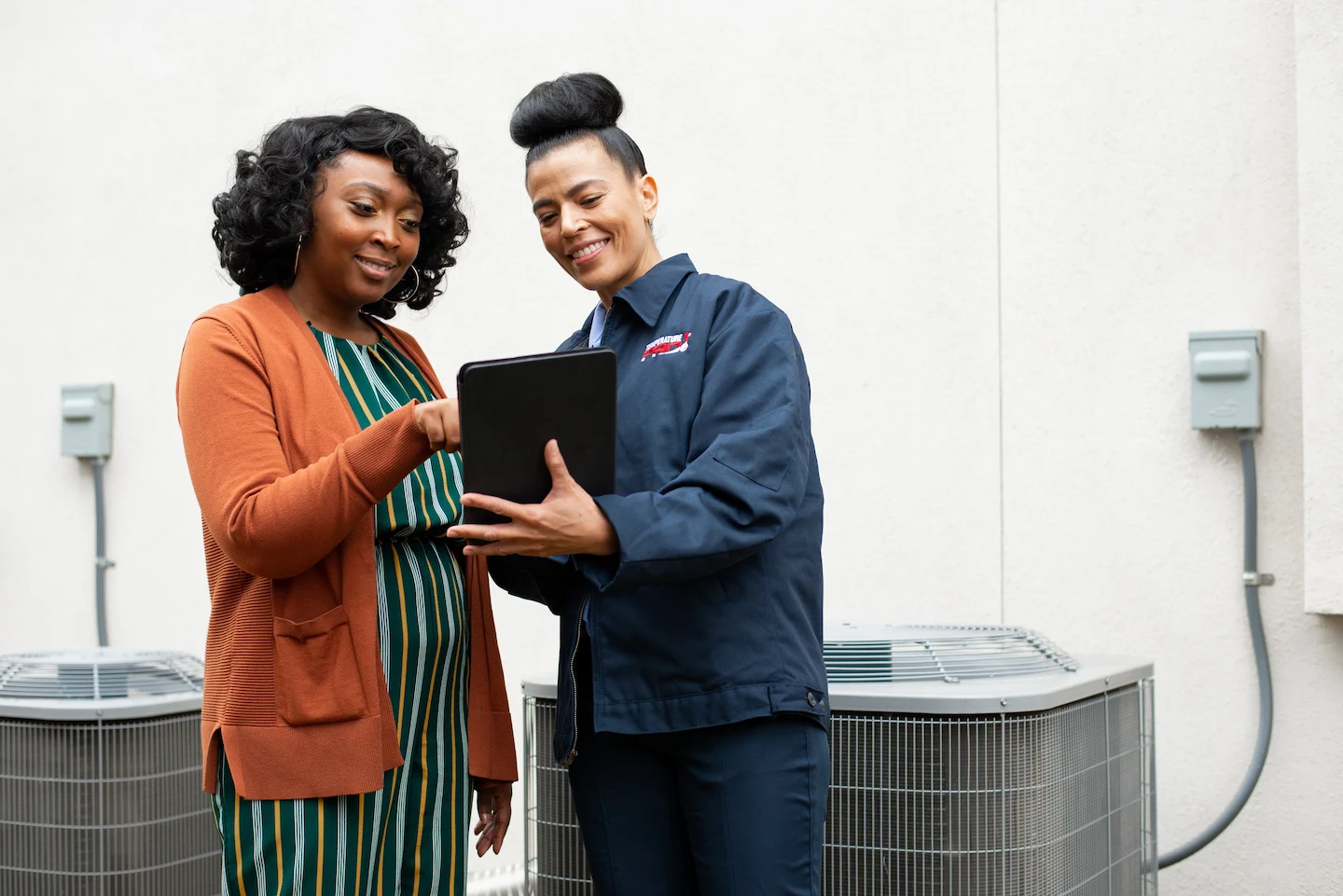As experts in the HVAC Industry, it is our job to inform our customers of any and all new developments in the world of HVAC and how it affects you and your purchases. The Inflation Reduction Act can affect your future HVAC purchases and may even save you money.
It can affect any individual or business, but in short, the Inflation Reduction Act (IRA) as a whole covers new and reinstated tax laws including a number of credits and deductions and/or rebates. This article focuses on the tax credits section of the IRA. Rebates are still under development and will be released later this year.
Why is the Inflation Reduction Act Important To Me?
Specifically for HVAC, the Inflation Reduction Act can provide both tax credits and point-of-sale rebates towards the replacement of old or aging equipment with high energy-efficient HVAC equipment – which could save you thousands.
What Are the Inflation Reduction Act Tax Credits Available?
Currently there are three Home Energy Tax Credit programs available to all homeowners:
Nonbusiness Energy Property Tax Credit (Previous 25C Tax Credit)
A. Qualifying customers that updated HVAC equipment can receive tax credit equal to 10% of energy efficient equipment purchase up to $300 on a variety of select heat pumps and air conditioning equipment ranging from 14 SEER to 16 SEER and up.
B. To Learn More, visit our Nonbusiness Energy Property Tax Credit explanation.
Energy Efficient Home Improvement 25C Tax Credit (Current System Credits)
A. Energy Efficient Home Improvement Tax Credit (Section 25C) provides tax credits for installed equipment that exceeds CEE’s highest tier (not the advanced tier) and has no income level limitations.
B. Qualifying customers that updated HVAC equipment beginning in the calendar year of 2023 can receive tax credits equal to 30% of cost incurred up to $1,200 annually including:
C. To learn more, visit our Energy Efficient Home Improvement 25C Tax Credit (Current System Credits) explanation.
Energy Efficient Home Improvement 25C Tax Credit (Current Energy Audit)
A. Qualifying customers can receive tax credits for a home energy audit performed in the calendar year 2023 or later. The tax credit is equal to 30% of cost incurred up to $150 for a Home Energy Audit that identifies the best energy efficiency improvements.
B. To learn more, visit our Energy Efficient Home Improvement 25C Tax Credit (Current Energy Audit) explanation.
This information is a lot of tech speak: if you want to learn more, reach out to one of our TemperaturePro Techs and we would be happy to explain in depth and see if you qualify.
Who can qualify for the Inflation Reduction Act 25C Tax Credits?
In short- all households are eligible. Any homeowners who make improvements to their primary residence can claim a credit for any expenses used to make those improvements. Renters and owners of second homes used as residences may also be able to claim credits. However, it’s important to note that credits are not available for any improvements made to properties that are not used as a residence.
What HVAC equipment can qualify for the 25C Tax Credits?
A complete list is available on The Consortium for Energy Efficiency, but in short, these expenses may qualify if they meet the requirements:
- Exterior doors, windows, skylights and insulation materials
- Central air conditioners, water heaters, furnaces, boilers and heat pumps
- Biomass stoves and boilers
- Home energy audits
For the official requirements on what qualifies for the 25C tax credits and to view Frequently Asked Questions, visit the U.S. Department of Energy
How do you apply for the tax credits?
TemperaturePro recommends speaking to a certified tax professional to claim the tax credits on your federal income tax returns. If you would like to file your own taxes, fill out Tax Form 5695 and follow these instructions provided from the IRS.
What HVAC equipment can qualify for the 25C Tax Credits?
As we move forward to a more energy-conscious future, legislation will continue to benefit those willing to make decisions that improve energy usage. All households are eligible for these tax credits if you choose to upgrade.
If you are ready to upgrade your system and choose an energy-efficient improvement to your home, ask TemperaturePro about how the Inflation Reduction Act can benefit you.
Sources:
- IRS
- IRS Fact Sheet
- Tax Credit Table
- Energy Star
- Energy.gov
- Goodman
- Trane
- Ferguson Suppliers
- 42 U.S.C. § 18795a: High-efficiency electric home rebate program
- IRA Homeowner’s Calculator
- Understanding The High Efficiency Electric Home Rebate Act (HEEH)
- Consumer Reports Article
- CEE 2023 Specification Standards
- The White House – Clean Energy for All
- CEE Tier Levels
- Energy Star – Equipment Tax Credits




